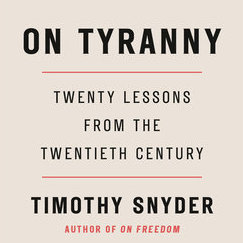A vinyl sombrero. A needlepoint rendition of Gainsborough’s Blue Boy. A macramé lawn chair. If you go to the thrift store with a specific item in mind, you probably won’t find it. You’ll find something else. I forage for the else.
My relationship with the thrift store started a few months after my life-partner died and I dropped off the first bag of clothes he wouldn’t be wearing any more. Before that, in the early weeks of mourning, I couldn’t let anything go. Taking bookmarks out of his books, or emptying his pockets of keys or chapstick, could capsize me. I had no sense of what to hold and what to disown, what was essential and what was peripheral. Everything seemed important, even clothes that Rajiv hated or never wore. Everything he’d touched bore meaning.
Some of the men in my grief support group donated all of their wives’ clothes in one fell swoop. Maybe that’s the way to do it. Instead I made a fetish of Rajiv’s things: the measuring tape he reliably carried in his pocket, the purple socks he wore to chemo, the belt creased to his notch. His name disappeared almost overnight from his university department’s webpage, and so Rajiv’s clothes were testimonials to his existence. They still preserved trace epithelial cells. Long after I could no longer smell him on them, my dogs could still catch a scent, setting their tails wagging, only to fall again when he failed to materialize. Eventually, when I started counting in months rather than weeks, I reminded myself that Rajiv would not have wanted his clothes to sit unused. An environmental engineer, he was all about recycling, repurposing, remediating.
To reward myself for surrendering each box of donations, I allowed myself to enter the store. I wandered the aisles, and let their glorious randomness inform me. The Velcro dart board. The soaring eagle pot holder. The CANADA mug with half a moose coming out of either end. Pillows displaying those two ubiquitous cherubs who long ago grew cloying. Newly alone, not knowing who I was now, I shopped for a new identity, using items from other people’s past to reconstruct myself. I felt as if I were making a pilgrimage to some holy shroud, paying homage to a deity whose identity might reveal itself to me in any one of these objects.
I couldn’t have predicted the items I was drawn to. The 1960s chemistry set in its latched metal box. The pink flamingo bathroom mirror. Brass duck book-ends.
There’s a weird, impossible hope in the thrift store that maybe your lost childhood can be recovered after all, that maybe loss can be remedied. Or maybe the thrift store is the limbo before oblivion. It’s the repository of cultural memories, the way-station between now and history. Whole chunks of an era’s fads and fashions—the more embarrassing and forgettable ones—would be lost if not for thrift stores, as congregants in the cult of the new rush on to younger trends. It’s the museum of leftovers, history-from-the-bottom up.
I remember my mother saying many times after my father died, “A whole lifetime goes by so quickly.” Each repetition bore fresh wonder.
Many of the items would be on their way to “vintage” or “antique” status if they weren’t so damaged. Just too many chips or cracks or missing pieces. The naugahyde suitcase duct-taped down the center. The Fiesta plate that would be worth something were it not for three hairline fractures radiating from its center. The warped hat-box.
Many of the people match the merchandise. We are the leftovers, chipped, cracked, born too soon or too late, out of style, not cool enough to be retro. But a varied demographic haunts the thrift store. There are, of course, the truly indigent, who simply can’t afford to buy new. They come out on half-price day every other Saturday, and often pay with large, crisp bills that went from their employers’ hands to theirs without passing through a bank. For some of them, the $1.25 T-shirts I buy on a whim for camp value are a luxury. Then there are the professionals, the collectors and dealers, ipads in hand, checking the going rates on eBay as they sweep through the store. You also find middle-class shoppers gone slumming, narrating their whole shopping trip into their cell phones, or the bohemians, their visits a political stance against the exploitative consumerist marketplace. Then there are the funny-looking people, in mismatched clothes and odd hats over unwashed hair, Beckettian characters with stoops and humps and limps and the occasional tick. Many are regulars. I started out as a slummer who flattered herself a bohemian, but I think I’ve become one of the funny-looking people. We’re the ones who feel most at home here in this place of damaged goods and missing parts. The salt shaker without its pepper. The lidless pot.
Among the last of Rajiv’s items to go to Goodwill were his jeans, still molded to the shape of his body, ass indentations and all, the last proof of his absence.
Some of the items have almost surely outlived their former owners. The unopened package of Depends. The walker with tennis balls still attached. The doggie stairs. Other items make you wonder. The ornate China candy dish with the words “25thAnniversary.” The photo still in the frame bearing the bold message “Friends forever.” What happened to that friendship?
When I recommended the thrift store to a twenty-ish friend in dire need of workplace-appropriate clothes, I casually added that I brought some of Rajiv’s clothes there. My friend, not meaning to offend, freaked out. “You mean I’d be wearing the clothes of dead people?” I don’t mind wearing clothes of dead people, I realized; I feel honored. I went back to the thrift store with a new awe. It’s not like buying something from Target, shrink-wrap-sealed from history. All of these things once meant something to someone.
On Half Price Saturday the store is already swamped when I arrive, 15 minutes after its 8:00 a.m. opening. Carts are traffic-jammed, kids are playing with unbought toys in the aisles, and the lines for the dressing rooms are so long that one well-prepared woman strips down to her leggings and sports bra to try on clothes al fresco. There’s no time to gawk. It’s find and grab.
I’ve had my eye on a football-sized ceramic acorn with a thumb-sized squirrel sitting on top. The squirrel both guards its hoard and serves as a handle-knob, which, when raised, splits the acorn into half-shells. It’s been taped shut, but now that I’m ready to buy it I peel off the tape to make sure I can fill it with dog treats. The back door of my house has been the site of epic struggles between me, my dog, and a squirrel, and only the best bribes can begin to cut through my border collie’s misguided herding frenzy. An acorn dog-cookie jar by the door will surely help me maintain my humor during these episodes.
When I peer inside I find folded, yellowed newspaper scraps. I open one carefully. It’s an obituary of a young man, Ernie Romero, who died at age 26 following a car crash in 1992. The other three clippings are also obituaries: Dorothy L. Peil, 1927-1995; John D. Cortez, Sr., 1932-1997; and, finally, Jacob Steely, 1910-2000. I re-fold them, respecting their former creases, and return them to their reliquary, no longer a piece of goofy kitsch. Can I really replace the obituaries with dog treats?
Across from dishware and ceramics, Men’s Short-Sleeved Shirts Starting at $3.99 bump chests. In the next rack over, Men’s Long-Sleeved Shirts Starting at $4.99 hang their arms. Behind them loiter Men’s Pants Starting at $4.99. A man holds a pair of jeans to his body. I pause to assess the pants along with him. I know how to shop for his body type, which approximates Rajiv’s, compact and sinewy. He’s got the same cinnamon skin, too, though he’s probably Mexican instead of Rajiv’s Indian. The jeans he holds would fit Rajiv. Then I see that they are Rajiv’s jeans, the pair I recently donated.
I feel strange watching him assess Rajiv’s jeans. I pause to identify the feeling. I have no problem wearing other dead people’s clothes, but I’d never stopped to think how I’d feel about strangers wearing Rajiv’s. I want to feel fine about it, but instead feel strange.
When I studied Hinduism and Buddhism, I had a hard time with the concepts of reincarnation and egolessness. It’s not as if your soul is plopped into a new body, I learned. But what good is reincarnation if you lose your identity, my American ego asks. The thrift store is like the Hindu concept of reincarnation, the Buddhist bardo of material goods. It absorbs all the things that make up a life, washes out their personal meanings, and then returns them to the world for another cycle of samara, of futile struggle against change. Everything recycles, so quickly, moving from host to host. Only change remains.
As I watch the man, a little boy runs down the aisle with a plastic gun he’s discovered in the toy section. When he sees my eyes on him, he pauses, raises his gun, aims at my heart, and pah-kews.
“Aargh!” I say, grabbing my chest and faking a slow, dramatic death, ending in a soft fall on the linoleum floor. The boy giggles. As I rise, still cradling my acorn, he runs off to fresh targets.
Deborah Thompson is an Associate Professor of English at Colorado State University, where she teaches and writes creative nonfiction and literary criticism.



